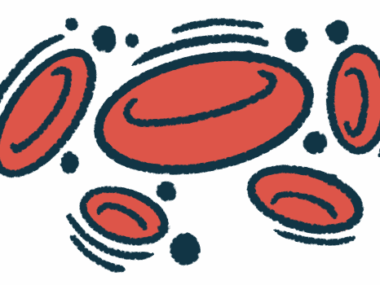EU committee recommends PiaSky approval for teens, adults with PNH
Injectable therapy just approved in US; also OK'd in China, Japan
Written by |

A European Medicines Agency (EMA) committee has recommended the approval of Roche’s PiaSky (crovalimab) to treat people with paroxysmal nocturnal hemoglobinuria (PNH), ages 12 and older, who weigh at least 40 kilograms (88 pounds) — including patients both new to, or previously treated with, C5 inhibitors.
The news comes just a week after the U.S. Food and Drug Administration approved the injectable therapy — which seeks to reduce the destruction of red blood cells in PNH — for patients ages 13 and older, who weigh at least 40 kg. PiaSky also has been approved for treating PNH in China and Japan.
Now, the European Commission will make its final decision on whether to approve the therapy, taking into account the committee’s recommendation. Roche indicated in a company press release that the decision is expected “in the near future.”
If approved, the treatment will become the first monthly under-the-skin (subcutaneous) treatment for PNH in the European Union. With the possibility for self-administration following proper training, PiaSky may offer a more convenient option for patients than do current therapies in its class that require regular into-the-vein (intravenous) infusions.
“People living with PNH face lifelong treatment, often requiring frequent intravenous infusions and time-consuming clinic visits,” said Levi Garraway, MD, PhD, chief medical officer and head of global product development at Roche. “With the option to self-administer once a month, today’s recommendation may therefore offer patients and caregivers in Europe more freedom in their day-to-day lives.”
PiaSky similar to Soliris, Ultomiris, but can be taken less frequently
In PNH, overactivity of the immune system’s complement system drives the destruction of red blood cells. Patients experience symptoms of anemia, in which there are not enough red blood cells to carry oxygen through the body, along with blood clots, fatigue, kidney disease, and other health issues.
C5 inhibitors have proven effective for treating PNH. These medications work to bind to C5, an important complement signaling protein, and prevent it from being split into its two subunits, C5a and C5b. Preventing that cleavage in turn stops the complement cascade from being activated.
There are two such medications approved in the U.S. for treating PNH: Soliris (eculizumab) and Ultomiris (ravulizumab). Soliris is given intravenously once every two weeks, while Ultomiris is given either via intravenous infusions every other month or by weekly subcutaneous injection.
PiaSky is a new type of anti-C5 antibody that’s designed to be recycled in the bloodstream, enabling it to bind to and inhibit the C5 protein multiple times. As such, it is intended to last longer in the body than other C5 inhibitors and can be dosed less frequently.
After an initial intravenous infusion and weekly subcutaneous loading doses in the first month, PiaSky is administered as once-monthly subcutaneous injections, which patients can self-administer if they are properly trained.
The committee’s recommendation was backed by data from the COMMODORE clinical trial program, particularly the Phase 3 COMMODORE 2 study (NCT04434092), which enrolled 204 PNH patients who had not been previously treated with C5 inhibitors.
The results showed that monthly treatment with PiaSky provided similar disease control to Soliris, with a similar tolerability profile.
Supportive data also came from the COMMODORE 3 study (NCT04654468), involving people new to C5 inhibitors in China, as well as the COMMODORE 1 study (NCT04432584), testing the therapy in PNH patients who switched from approved C5 inhibitors, according to Roche.
PiaSky also is being investigated as a potential treatment for other complement-mediated disorders, including atypical hemolytic uremic syndrome and sickle cell disease.






